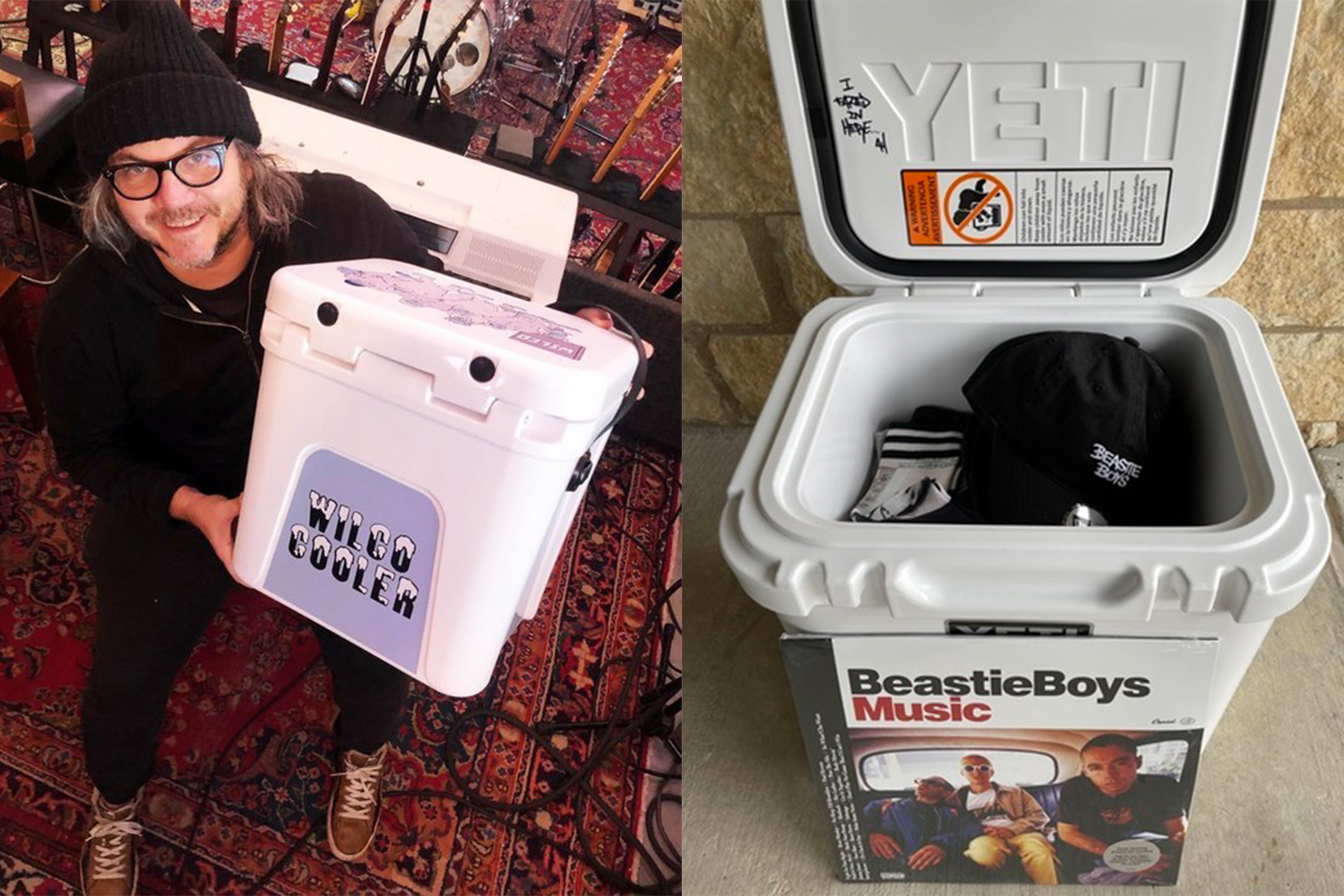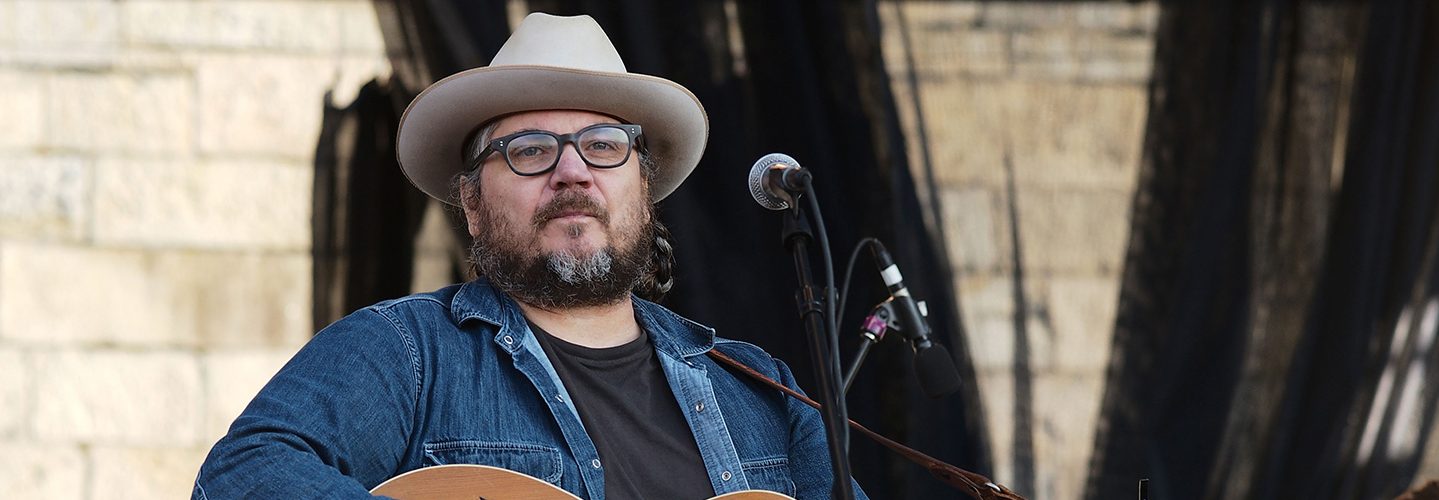Somewhere along the way, Wilco came to mean something that has little to do with their actual music. Instead, against their will, they’ve become representative of a very specific type of guy with very specific tastes that people love to make fun of; they’ve been burdened with the meaningless “dad rock” descriptor since it was used in Pitchfork’s 2007 review of their Sky Blue Sky album, and since then their name has become almost a lazy shorthand for indie-rock fans of a certain age the same way words like “coffeeshop” and “Brooklyn” have.
But before they were dad rock, they were “the Midwestern Radiohead,” earning that critical distinction on the heels of their universally beloved fourth LP, Yankee Hotel Foxtrot. But like Wilco itself, in the 20 years since its initial release, Yankee Hotel Foxtrot has become dwarfed by the idea of Yankee Hotel Foxtrot. The narrative around arguably the band’s best record has somehow shifted away from the music itself and focused instead on the legend surrounding it — the label woes, the in-fighting, frontman Jeff Tweedy’s debilitating migraines, the eerie but totally coincidental proximity to 9/11.
Even if you’ve never heard the album, you’re likely already familiar with its history: after laborious recording sessions full of bickering between Tweedy and multi-instrumentalist Jay Bennett that would later be immortalized in Sam Jones’s documentary I Am Trying to Break Your Heart and culminated with Bennett’s dismissal from the group, Wilco delivered Yankee Hotel Foxtrot to their label, Reprise Records (a Warner Music subsidiary), only to be told that it was unreleasable because it lacked “commercial potential.” Despite having advanced the band $85,000 to make it, the label refused to put it out and subsequently dropped them. The album was originally slated to be released on Sept. 11, 2001, and the band released it as a free download on their website a week later, when the buildings on its cover (Chicago’s Marina Towers), tracks like “Ashes of American Flags” and lines like “tall buildings shake, voices escape singing sad, sad songs” on “Jesus, Etc.” took on a new unexpected heaviness in the wake of the tragedy. Eventually, Wilco was signed by Nonesuch (another Warner imprint, meaning the company paid twice for the record), and Yankee Hotel Foxtrot was properly released in April 2002. It was quickly hailed as a masterpiece, it became the band’s highest-selling album to date, and the rest, as they say, is history.
Because of all the (admittedly compelling) stories swirling around it and the misplaced grief of a nation that got projected upon it, it can sometimes feel as though the lore behind Yankee Hotel Foxtrot has overshadowed the music itself. That may be an odd thing to say about an album that ranks highly on just about every publication’s “Best Albums of the 2000s” list and received one of just 12 perfect 10.0 scores on Pitchfork in the site’s 26-year history, but it’s nearly impossible to find anything written about it in the two decades since its release that doesn’t delve into the drama surrounding it. The general consensus is that this is a Great, Important Record, but there seems to be a belief that it’s a Great, Important Record at least in part because of its circumstances; it’s a happy ending, one that’s easy for reporters and critics to latch onto because it almost writes itself — Wilco rises from the metaphorical ashes of label turmoil and acrimonious personnel changes to put out their career-best work, just as a wounded, reeling country looks to rise from the literal ashes of a horrific attack and rebuild. It’s a better record than it has any right to be, given everything we know about what was going on while it was being made, and so that high level of difficulty gets factored into its legacy.
But even if you strip away all the extraneous narratives and listen to it in a vacuum, Yankee Hotel Foxtrot stands as one of the best albums of the past 20 years — if not all time — from a purely musical standpoint. The seeds of experimentalism planted on 1999’s Summerteeth are in full bloom on YHF, but even as they swap fairly straightforward Americana for art-rock and layered noise, there’s a certain warmth that remains throughout. Sonically, it’s extremely complex — full of feedback, static and “A Day in the Life”-style clutter on tracks like “I Am Trying to Break Your Heart” — but it also contains some of Wilco’s most accessible songs.
For every bold step away from their alt-country roots like “Radio Cure,” there’s the straightforward loveliness of “Jesus, Etc.” or the radio-friendly nostalgia of “Heavy Metal Drummer.” Tweedy’s lyricism is unmatched, poetic and inscrutable — like a Rorschach test listeners can attach their own meaning to — and at other times beautifully simple. For every American aquarium drinker assassin-ing down the avenue, there’s a wonderfully to-the-point declaration like “I’m the man who loves you” or an emotional gut-punch like the revelation on “Ashes of American Flags” that “All my lies are always wishes/I know I would die if I could come back new.”
Despite that contrast, it’s a surprisingly cohesive record, thanks in part to Jim O’Rourke’s masterful mixing. It’s by no means the group’s most musically adventurous effort — after all, it’d be three more years until Nels Cline would join them — but it represents a clear turning point in their catalog. The songs have evolved in live settings in the two decades since they were released, some to the point where going back and listening to the studio version feels almost quaint, but the beauty of them is that they all warrant repeat listens.
Back in 2011, a decade removed from Yankee Hotel Foxtrot, Tweedy told me he has a hard time with the binary way people tend to view the emotions in his work. “People seem to think that there is some big happiness, or someone, or some piece of music even or art, like, ‘Is that sad? Is that happy?’ and it’s like, I don’t really get that,” he said. “I don’t understand that, to be honest. I’ve always felt bad that people ask me if I’m a happy person and I really don’t — they don’t want you to say no, you know? Because that’s really like an offensive thing for a lot of people. It’s like, ‘Well, no, not really, I’m not an unhappy person, but I think I have the full range of emotions that humans have, and I’m prepared to deal with them as they come.’”
He was talking about The Whole Love, but ultimately that “full range of emotions that humans have” — and especially the way happy and sad can live together in harmony — is what makes Yankee Hotel Foxtrot so masterful. It’s a real chameleon of a record, one that refuses to ever be just one thing, and that’s perhaps why it’s so maddening that it’s been reduced to its backstory. So yes, celebrate its anniversary this week by recognizing that the suits at Warner made a colossal error in refusing to put it out, but also remember that even if they hadn’t, we’d still be hailing it as a masterpiece.
This article appeared in an InsideHook newsletter. Sign up for free to get more on travel, wellness, style, drinking, and culture.
























